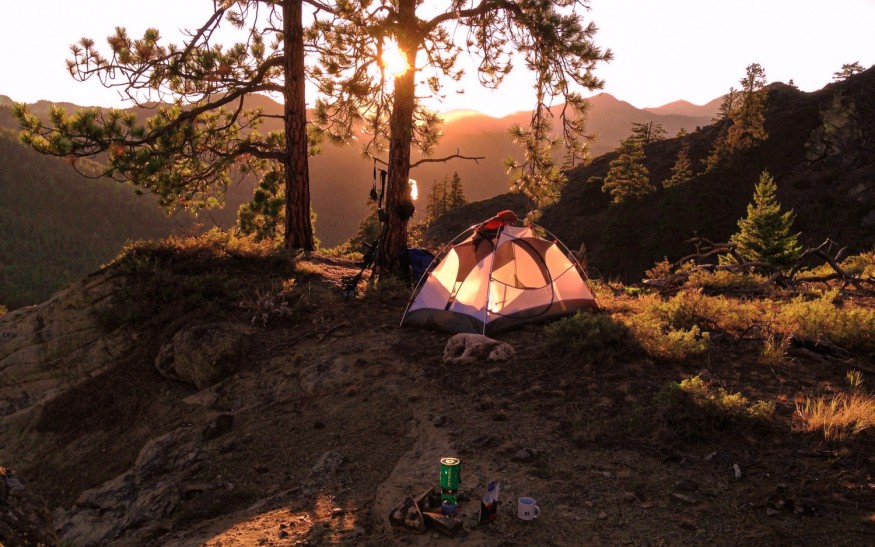
Reconnecting with the natural world offers a respite from our fast-paced, technology-driven lifestyles, and what better way to immerse ourselves in the great outdoors than camping? As we unplug from our screens and engage with the earth's rhythms, the benefits of camping become clear:
Enhanced mental well-being
A strengthened immune system
Improved sleep
The pure joy of adventure
Whether you're setting up camp in a well-traveled park or venturing tips for planning a camping trip to a remote area, the importance of preparation cannot be overstated.
Equipping yourself adequately for camping is crucial, not only for safety but also to get the most out of your outdoor experience. It's like a chess game where foresight and strategy can mean the difference between a successful camping experience and a difficult one. Sustainable camping practices also play a significant role in our gear choices, reducing our footprint and preserving these beautiful spaces for future generations.
An overarching principle for sustainable camping is "leave no trace." This philosophy is about minimizing our impact on the natural environment by taking along the right gear and using it responsibly. Choosing essentials that are durable, environmentally friendly, and practical will not only enhance your camping experience but will also contribute to the preservation of the wild spaces that we all cherish. Keep reading to delve into the camping essentials that align with this philosophy, and make sure you are prepared for your upcoming adventure.
Shelter and Bedding
When packing for a camping trip, the first thing to consider is your shelter and bedding. A good quality, sustainable tent that is fit for purpose will be your home away from home. Look for options that use materials with a low environmental impact, like recycled polyester or organic cotton.
A comfortable and warm sleeping bag is equally vital. Materials such as responsibly sourced down or synthetic fibers offer excellent insulation while considering animal welfare and environmental impacts. Remember, your choice can make a difference!
Cooking and Eating Utensils
When it comes to outdoor cuisine, convenience, and simplicity are key. Lightweight cooking gear like camping stoves, pots, and utensils made from stainless steel or hard-anodized aluminum are durable and easy to clean.
Imagine this: you're waking up to the morning's fresh air, brewing a piping hot coffee in your mug. The warmth of the mug against your chilly hands, the smell of the coffee mingling with the crisp forest air - a small yet immensely satisfying part of the camping experience. Insulated products are essential for keeping your food and drinks at the right temperature.
Insulated Products
Insulated products, especially an insulated coffee mug, provide home comfort in the heart of nature. Your morning brew retains its warmth, making those cooler mornings more bearable. But these products go beyond coffee. Insulated flasks can keep your soup hot for a trail lunch or preserve chilled drinks for a warm afternoon.
Choosing insulated products with a high-quality vacuum seal and a stainless-steel interior will ensure longevity and optimum heat or cold retention. Furthermore, selecting products with outer shells from sustainable materials like recycled plastics contributes to your low-impact camping approach.
Clothing and Footwear
Dressing appropriately is crucial for an enjoyable camping trip. Always consider the climate and season of your camping destination. Layered clothing is necessary, allowing you to adapt to changing weather conditions. Invest in sustainable clothing from organic cotton, hemp, or recycled synthetics.
Likewise, proper footwear is essential. Waterproof, comfortable hiking boots protect your feet during long treks, and durable sandals are ideal for navigating around the campsite or exploring nearby streams. Choose shoes made from eco-friendly materials or brands committed to sustainable manufacturing practices to further support your eco-conscious camping experience.
First Aid and Safety
Safety should be a primary concern when you're out in the wilderness. A well-stocked first aid kit is critical in case of any injuries or emergencies. Your kit should include bandages, antiseptic wipes, tweezers, pain relief medication, and any personal medication you may need.
Alongside the first aid kit, it's smart to pack some essential survival items. These include a multi-tool or Swiss Army knife, a whistle, a compass, and a topographical map of your camping area. Even camping in a well-known spot, it's always better to be safe than sorry.
Eco-Friendly Hygiene Products
Camping doesn't mean preceding personal hygiene. However, choosing products that won't harm the environment is important. Biodegradable soap, shampoo, and toothpaste will keep you clean without polluting the natural water sources.
Also, consider packing quick-drying towels made from bamboo or other sustainable materials. They are super absorbent and lightweight, making them perfect for your camping backpack.
Camping is an opportunity to embrace our inherent connection with nature. With the right preparation and the correct gear, we can enjoy these precious experiences while ensuring the preservation of these natural havens for future generations. By making conscious, sustainable choices, we can camp in harmony with nature, showcasing our respect for the wild spaces we love and enjoy. Remember, the goal is not just to visit but to interact with nature in a way that leaves it unimpaired for future generations.
Camping responsibly and sustainably doesn't diminish the fun or sense of adventure-it enhances it. Knowing that you're taking steps to preserve the natural beauty around you adds an extra layer of satisfaction to the camping experience. So, as you prepare for your next trip, remember these essentials and join the movement of nature-loving campers who are taking strides to make every camping trip a sustainable adventure.
© 2025 NatureWorldNews.com All rights reserved. Do not reproduce without permission.

